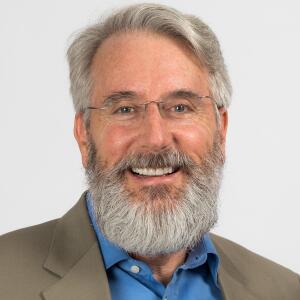A Roadmap for Selecting Your Next 9(j) Medical Expert
Selecting the right expert witness can make or break your case. In Moore v. Proper [1], the North Carolina Supreme Court held that the plaintiff could reasonably have expected her 9(j) expert to qualify under Evidence Rule 702 in her dental malpractice case, thus reinstating her case. The Opinion of the Court is a roadmap for lawyers identifying possible 9(j) experts. In addition, Justice Newby’s concurring opinion serves as a caution sign for lawyers along that road.
The key inquiry was whether the plaintiff’s 9(j) expert, Dr. Dunn, devoted a majority of his professional time to the active clinical practice of dentistry during the year preceding the alleged injury. [2] At the time of filing, the plaintiff knew or should have known that Dr. Dunn was a licensed dentist with over thirty-five years of full-time experience. He served as a dentist in the US Navy and spent the remainder of his career practicing general dentistry in Asheville. He retired in 1997 and served as director of the clinic at the local health department from 1998 to 2000 where he performed oral surgeries and tooth extractions. He maintained his license after retirement. Since retiring, including the year preceding the alleged injury, he practiced on a fill-in basis for dentists in the Asheville area.
The extent of Dr. Dunn’s fill-in work during the year preceding the alleged injury was unclear. He testified in deposition that during that period, he could have practiced as few as thirty days or over two and one-half months when filling in full time for a friend. Even with the conflicting evidence, the court found it was reasonable to infer Dr. Dunn engaged in fairly regular clinical practice for a substantial number of hours, the totality of which likely amounted to active clinical practice. The court also found that all of Dr. Dunn’s time in the dental profession was spent in clinical practice. As Dr. Dunn’s activities unrelated to dentistry are not considered professional time, it was reasonable to infer that Dr. Dunn devoted a majority of his professional time to the active clinical practice of dentistry. For purposes of Rule 9(j), plaintiff reasonably expected that Dr. Dunn could qualify as an expert under Rule 702(b)(2).
Justice Newby agreed that the complaint should be reinstated, but did not agree that the plaintiff could have reasonably expected Dr. Dunn would qualify as an expert witness under Rule 702 as the majority articulated that Rule. He concurred in the result only because the plaintiff did not have the benefit of the court’s Opinion at the time of filing.
Justice Newby said the evidence led him to hold that Dr. Dunn did not engage in “active clinical practice” during the one-year period preceding the alleged injury. He assumed Dr. Dunn filled in for over two and one-half months during the year preceding the alleged malpractice, but said that amounted to roughly twenty-five percent of the relevant period and was simply not enough. Because Dr. Dunn's work depended on the illness or vacation of others, he did not practice with consistency or frequency. Finally, Justice Newby said that as a fill-in, Dr. Dunn did not perform most treatments and procedures performed by dental clinicians, leaving those to the patient’s regular dentist. All of these factors led Justice Newby to conclude it was not reasonable for the plaintiff to expect Dr. Dunn to qualify as an expert under Rule 702.
What can we learn from Moore v. Proper and Justice Newby’s concurring opinion? Selecting a 9(j) expert is perhaps a little counter-intuitive. Most practitioners would conclude that Dr. Dunn was the perfect expert witness: a dentist with over thirty-five years of full-time practice in the same town as the defendant dentist, and a part-time, fill-in practice in the year preceding the alleged injury. Wouldn't that kind of expert be preferable to an out-of-town hired gun? The answer is: not necessarily.
- Whether the plaintiff “reasonably expects” the expert to qualify under Rule 702 is judged as of the time of filing. The court will look to the facts and circumstances that the plaintiff knew, or should have known, at the time of filing.
- Focus on each word of the phrases “active clinical practice” and “majority of professional time.” Rule 702(b)(2)(a). Each word is important and requires close analysis. If necessary, count days. Justice Newby said in his Concurring Opinion that Dr. Dunn did not engage in “active clinical practice” because, among other reasons, he spent only about twenty-five percent of the workdays in the year in the clinical practice of dentistry.
- Remember that even if the expert passes 9(j) muster, he or she may not ultimately qualify as a testifying expert. The supreme court expressed no opinion as to whether Dr. Dunn would actually qualify as an expert witness under Rule 702(b)(2).
Mark Scruggs is a claims attorney with Lawyers Mutual specializing in litigation, workers compensation and family law matters. You can reach Mark at 800.662.8843 or at mscruggs@lawyersmutualnc.com.
About the Author

Mark Scruggs
Mark Scruggs is senior claims counsel with Lawyers Mutual specializing in litigation, workers compensation and family law matters. You can reach Mark at 800.662.8843 or at mscruggs@lawyersmutualnc.com.
Read More by Mark >
